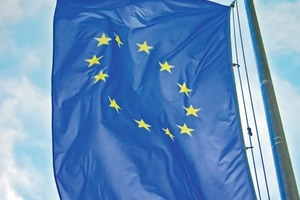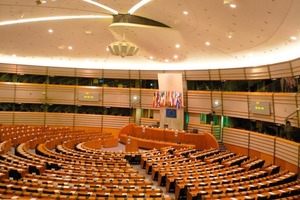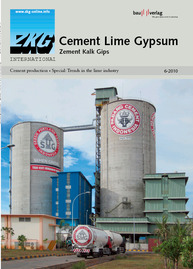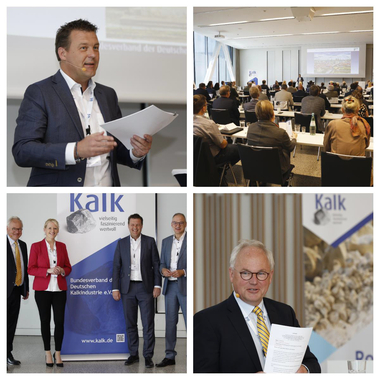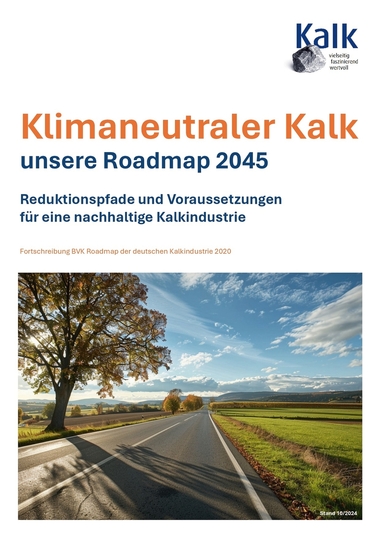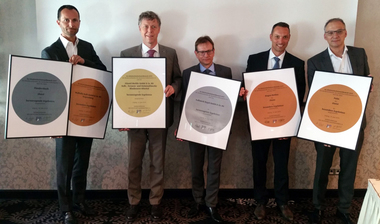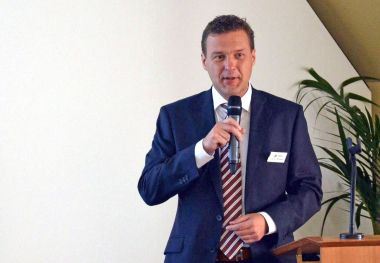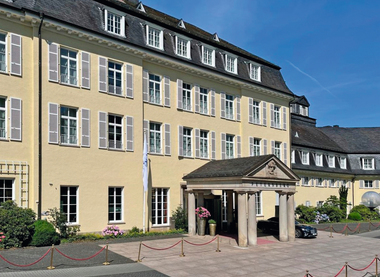German lime industry in dialog
with Berlin and Brussels
Intensive interchange of opinion and ideas with political decision-makers, and with members of the federal government and the European Commission, is one of the central tasks of the Association of the German Lime Industry (BVK).
The BVK thus not only represents the interests of its members and seeks to avert legislation that would be disadvantageous for the lime industry, but also functions as an interface with the political world, providing its knowledge and expertise to politicians and administrators.
Following European and federal parliament elections, the accession of the conservative and liberal coalition in Germany, and the appointment of the new European Commission, the prime task in the past business year has been that of establishing new contacts at all levels and, in cases in which posts important to the industry had new incumbents, of making the initial contacts and representing the lime industry, an extremely important mineral raw materials sector, against the background of the many and diverse applications for its products.
In view of the diversity of topics associated with the lime industry, the BVK, with its supradisciplinary coordinating function, maintains intensive contacts with the Federal Ministry of Economics and Technology, Federal Ministry of Finance, Federal Ministry of Food, Agriculture and Consumer Protection, Federal Ministry of Transport, Building and Urban Affairs, Federal Ministry for the Environment, Nature Conservation and Nuclear Safety and, not least, with the Office of the Federal Chancellor.
Predominant topics in the past year have, in particular, been energy and climate policy, fiscal policy, reform of the Renewable Energy Sources Act, securement of raw materials supplies and regional planning, REACH, the globally harmonized system (GHS) program, fine quartz dust and important, significant questions of standardization.
Within the German and European parliaments, the people with whom the BVK maintained existing contacts and established new ones were, in particular, politicians specializing in economic, environmental, energy and agricultural matters. It is important in these fields to be continuously present and available, in order to find the right answers quickly and reliably when relevant questions come under discussion.
This year the lime industry association was once again able to welcome individual members of the federal parliament as visitors, in the context, inter alia, of on-the-spot visits to various facilities – the best way, without doubt, of highlighting the diversity of the lime industry and the challenges it faces. The BVK thus created a solid basis for good access and recognition as a discussion partner in Berlin and Brussels during the coming legislative period.
The lime industry association is attempting to exert an influence on the necessary deliberations and legislation during this legislative period, in order to achieve the desired results, and has, for example, already formulated its views concerning new energy policy, and communicated them to the relevant political bodies.
Along with 18 other specialist organizations serving the mineral resources industry, the Association of the German Lime Industry is a member of the German Building Materials Association (BBS), which focuses the common interests of the German building materials and mineral resources industries at national and international level. The BBS, for its part, is one of the member associations of the Federation of German Industries (BDI), within which the BVK is also active in the energy and climate, mineral resources policy, statistics and steering committees so important to its own members.
For the building materials industry, the economic crisis has, on the whole, not yet been fully overcome. Production declined by 10.6 % in 2009, and a further fall of 5 % across all industries is also anticipated for 2010.
Following the tabling of a draft bill on modification of the Energy and Electricity Taxation Act, it has been possible, in close coordination between the energy-intensive industries, to achieve proposed legislation predominantly favourable to the interests of the building materials industry. The BBS, jointly with these industries, has taken up its position, actively opposing arbitrary differentiation, and promoting equality of treatment in questions concerning taxation and tax-exemption of building materials industry processes.
After intensive negotiations, the Federal Economics Ministry has agreed to support implementation of the EU guideline for recovery of minerals in Natura 2000 zones, and also contractual nature conservation. The latest edition of the guideline now expressly assumes that mineral resources can also, in principle, be exploited in Nature 2000 zones. The BBS provided definitive support and assistance in the drafting of the EU guideline. The Federal Economics Ministry has also indicated to the BBS its preparedness to provide support in the drafting of the economic and industrial elements of the Groundwater and Alternative Building Materials Ordinance.
The BVK furnished assistance in the drafting of two BBS guidelines, the GHS guide and the guidelines on the Federal Spatial Planning Act. These two guidelines, in particular, demonstrate the intensity of cooperation between the BBS and its individual associations and, most especially, with the Association of the German Lime Industry. In adopting the position of the BBS here, the BVK assures a broader basis, and thus greater potentials, for the interests of its members.
The year 2009 at European level was one of transition. Following the elections to the European Parliament in June 2009, the final ratification of the Treaty of Lisbon in the autumn, and the appointment of the new European Commission in early 2010, political and legislative activities are now set to gather impetus again. As well as continuing to track important topics – such as CO2 emissions trading and the amendment of the 1996 Industrial Facilities Approvals (“IPPC”) Directive – this phase has been used within the European Lime Association (EuLA), following integration into the Industrial Minerals Association Europe (IMA Europe), the European umbrella organization for industrial minerals, to trim down and standardize the structure of the various committees and bodies, and to introduce supradisciplinary topic management.
In view of the renewed intensification of the activities of the EU institutions, this provides an important basis for the upcoming five-year EU legislature, and also for representation of the interests of the German lime industry at European level.
International cooperation is practiced at the level of the International Lime Association (ILA). The BVK currently provides the president of this organization, and is responsible its secretariat. The International Lime Conference, which this year will examine, in particular, the subjects of climate policy, emissions trading and international hazardous substances legislation, is to be held again in Berlin in the autumn, providing representatives of the European, American and Asian lime industries with a forum for exchange of experience and opinions.

